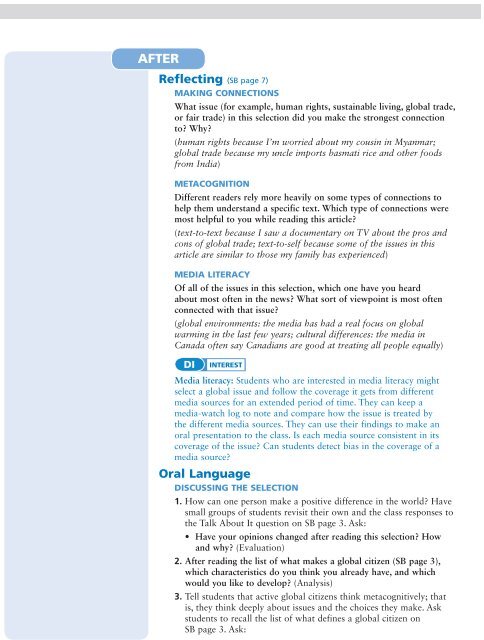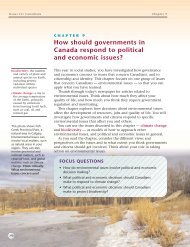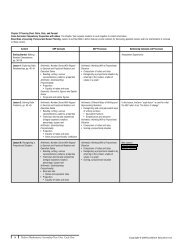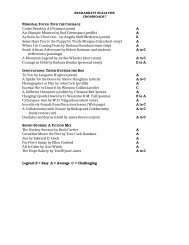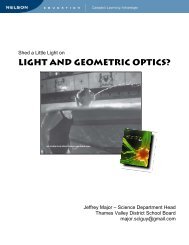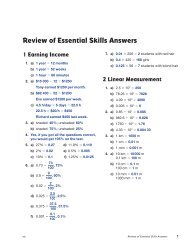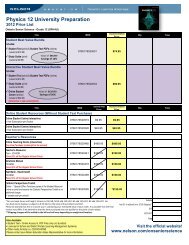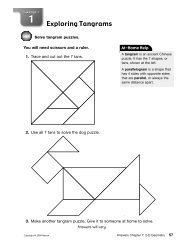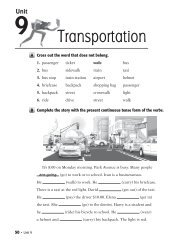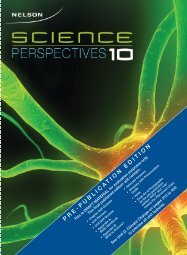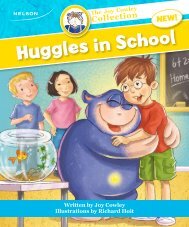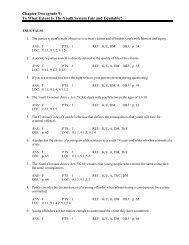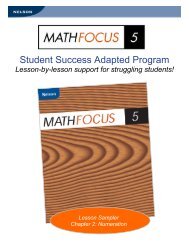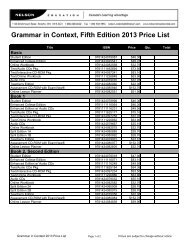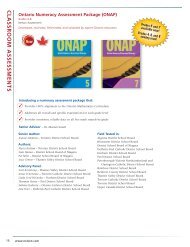Teacher's Resource - Nelson Education
Teacher's Resource - Nelson Education
Teacher's Resource - Nelson Education
- No tags were found...
Create successful ePaper yourself
Turn your PDF publications into a flip-book with our unique Google optimized e-Paper software.
AFTERReflecting (SB page 7)MAKING CONNECTIONSWhat issue (for example, human rights, sustainable living, global trade,or fair trade) in this selection did you make the strongest connectionto? Why?(human rights because I’m worried about my cousin in Myanmar;global trade because my uncle imports basmati rice and other foodsfrom India)METACOGNITIONDifferent readers rely more heavily on some types of connections tohelp them understand a specific text. Which type of connections weremost helpful to you while reading this article?(text-to-text because I saw a documentary on TV about the pros andcons of global trade; text-to-self because some of the issues in thisarticle are similar to those my family has experienced)MEDIA LITERACYOf all of the issues in this selection, which one have you heardabout most often in the news? What sort of viewpoint is most oftenconnected with that issue?(global environments: the media has had a real focus on globalwarming in the last few years; cultural differences: the media inCanada often say Canadians are good at treating all people equally)DI INTERESTMedia literacy: Students who are interested in media literacy mightselect a global issue and follow the coverage it gets from differentmedia sources for an extended period of time. They can keep amedia-watch log to note and compare how the issue is treated bythe different media sources. They can use their findings to make anoral presentation to the class. Is each media source consistent in itscoverage of the issue? Can students detect bias in the coverage of amedia source?Oral LanguageDISCUSSING THE SELECTION1. How can one person make a positive difference in the world? Havesmall groups of students revisit their own and the class responses tothe Talk About It question on SB page 3. Ask:• Have your opinions changed after reading this selection? Howand why? (Evaluation)2. After reading the list of what makes a global citizen (SB page 3),which characteristics do you think you already have, and whichwould you like to develop? (Analysis)3. Tell students that active global citizens think metacognitively; thatis, they think deeply about issues and the choices they make. Askstudents to recall the list of what defines a global citizen onSB page 3. Ask:NELA Global Citizen Is …17


